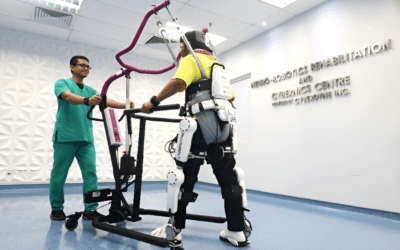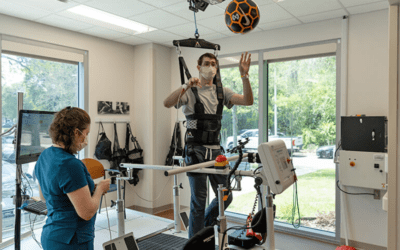Neurodegenerative disorders are chronic conditions that damage and destroy parts of your nervous system over time, especially your brain. These conditions are permanent and incurable, but many are now treatable thanks to medical advances. Currently, the main goal is to treat the symptoms and slow the progress of these conditions.
Caregivers—family and close friends who support those living with cognitive impairment—grapple with significant losses, both financial and emotional, as they navigate the journey alongside their loved ones. So it’s an especially hopeful time for families when new treatments for neurodegenerative diseases arrive.
Symptoms of Neurodegenerative Disorders:
- Mobility and balance issues.
- Abnormal movements.
- Swallowing problems
- Improper Bladder and bowel function.
- Blood pressure fluctuation.
- Sleep. disorder
- Improper Heart function.
- Breathing issues

Medical Treatment for Neurodegenerative Disorders:
Unfortunately, there’s currently no cure for neurodegenerative diseases. Still, some neurodegenerative diseases are treatable, depending on why they happen. Some of these conditions are treatable directly, so one may be able to manage, limit, or slow their effects. Other conditions aren’t treatable directly, but it might be possible to treat the symptoms and improve your quality of life.
They are typically treated with a combination of medication and psychotherapy. The exact combination and form of drugs depend on the form of neurodegenerative disease one has been diagnosed with.
Treatment for each form of Neurodegenerative disorder varies.
Medications help manage the physical and mental symptoms of neurodegenerative diseases. Unfortunately, these diseases are progressive, and there are currently no medications that can help to slow down the progression of their symptoms.
Challenges for the Neuro Patients and the Caretakers:
Caregiver burden is still an unmet need in the treatment of many neurodegenerative diseases. In movement and neurodegenerative disorders, the patient often experiences a progressive loss of autonomy and reduced quality of life.

The patient needs the help of an informal caregiver to cope with the activities of daily living. These caregivers experience a multifactorial burden, which can be referred to as a caregiver burden.
Besides the huge socioeconomic influence, caregiver burden is an orphan topic in neurodegenerative and movement disorders. Hence, with progressive burden, the caregiver suffers from depressive mood and reduced quality of life.
Finally, in the case of caregiver burnout, the informal caregiver cannot further support the patient, and this often leads to institutionalisation of the patient. Strategies for the relief of caregiver burden and the prevention of caregiver burnout are desperately needed.
The Best Rehabilitation Devices for Effective and Quicker Recovery:
- Virtual Therapy:
Virtual reality therapy uses immersive computer-generated environments that simulate real-life scenarios through visual and auditory channels for rehabilitation in patients with Neurodegenerative disorders.
- Augmented Reality:
Augmented reality involves the generation of new images from digital information in a person’s real physical environment. It enhances a person’s perception and interaction with their environment.
Augmented reality provides an integrative nature to rehabilitation, and similar results are seen with postural control in persons with Neurodegenerative Disorders.

- Robotics and Exoskeletons:
Robotics and exoskeletons involve the use of mechanical devices that assist human movement. Patient expectations need to be managed for which realistic and shared therapeutic goals are important.
Using traditional or technological approaches, physical therapy has reached good results in improving motor and nonmotor functions, as well as the quality of life of patients with Neurodegenerative Disorders.
Conclusion:
Perkeso Rehabilitation Centre is the most significant physical and medical rehabilitation programme integrating Physiotherapy, Occupational Therapy, Neuro-Robotic Therapy, Sensory Therapy, and more. The centre has advanced neuro-robotics rehabilitation with Cybernics technology.



